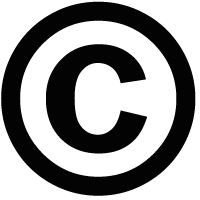Learn How a Copyright Affects Your Business
Copyright Laws
Copyrights are used to protect tangible works of art or creative works of expressions like books, research papers, songs and business publications. If you have works like these that you’d like to protect, you’ll want to perform the required steps to acquire copyright protection.
When you acquire copyright protection you are letting everyone know that the work belongs to you. You created it, and you own it. Remember though, the work has to be “fixed”. You can’t copyright an improvisational show that has not been recorded, for instance, and you can’t copyright music unless you record it or put it on paper.
Note: A copyright does not protect your business name or logo; trademarks are used for those things. There are other, significant differences between copyrights and trademarks, and it’s important to understand them.
How They Affect Your Business
It’s also important to understand that you can’t use information in your own publications or on your web site that has already been copyrighted by someone else unless you get permission from the owner to use it. Copyrights protect individuals’ intellectual property from just that kind of misuse. Before you photocopy any part of a work, book, publication or web site, make sure you are aware of the work’s copyright status and that you do not plan to use the information in any work you plan to make public or copyright yourself.
Additionally, note that you can’t copyright an idea or a business method; this means it’s okay to use someone else’s ideas or techniques, even if someone tells you that you can’t. When in doubt, ask to see the copyright. It’s okay to use someone else’s ideas; you can’t copyright an idea.
Finally, there is a “fair use” doctrine regarding copyright. Almost all fair use actions fall into two categories: Parody (such as Weird Al Yankovic’s song parodies) or Comment/Criticism (such as quoting from a book or poem) for the purpose of critiquing the work. The latter also allows for the quoting of information for use in reports or publications or for use in a court case.
Note: The Berne copyright convention states that every creative work is copyrighted the moment it is fixed in tangible form. Registering a copyright isn’t actually required, although it is helpful in legal disputes.
What It Does Not Cover
You learned a little about what copyright covers and doesn’t earlier in this article and elsewhere on Bright Hub. However, for the sake of completeness, here’s a little more information.
A copyright does not cover is physical inventions like machinery, plants, drugs, and other physical things. Those types of things must be protected by a patent. You may still be able to work a copyright in though, perhaps by copyrighting a blueprint, research information, and similar materials. For the sake of protecting your assets, it’s crucial you understand copyrights, patents, and trademarks.
Images and References
The author, Joli Ballew, created the image here in an art program.
The authors experience: Joli Ballew has written (and holds copyrights) for over 40 books. Copyrighting is pretty straightforward, and is much easier to obtain, than say, a patent. Many people that hold copyrights also have an agency or publisher to handle getting the copyright for them, making the actual writing or creating of the work the main focus.
